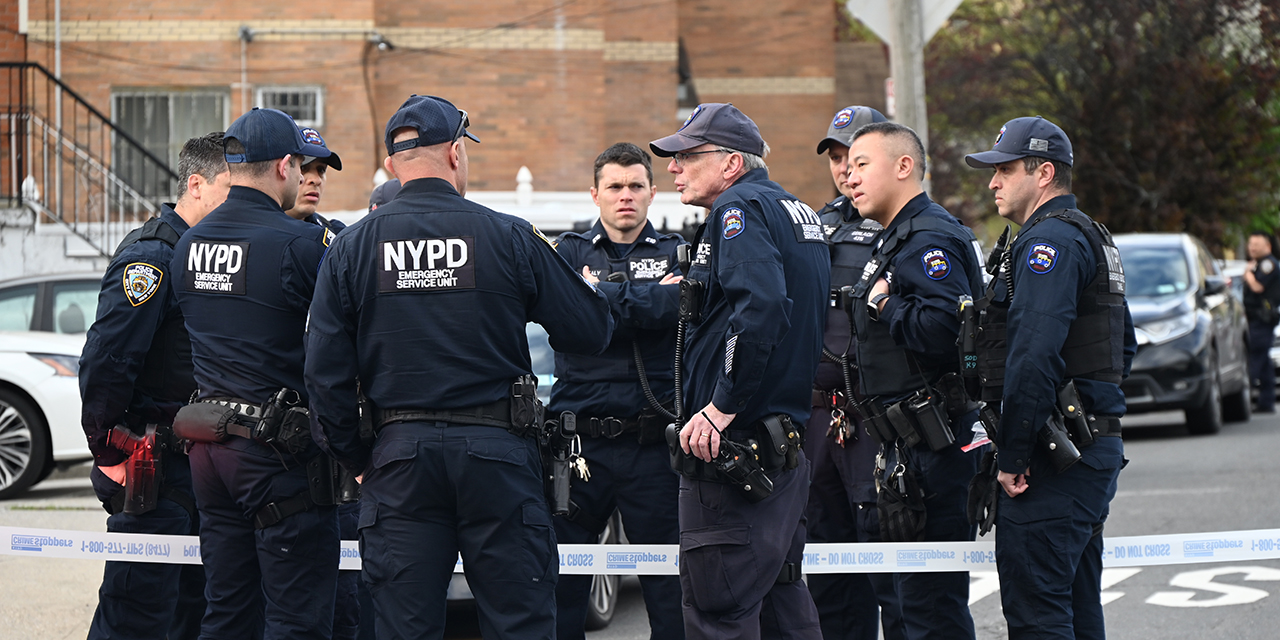Tuesday night was not the referendum on crime Republicans hoped it would be. Battering Democrats for supporting “defund the police,” a potent attack in the 2020 House races, didn’t seem to do the trick this time. Instead, if current results hold, the Democrats’ historically normal midterm losses appear to have been blunted by negative reactions to the Dobbs ruling on abortion, as well as underperformance by some of Donald Trump’s handpicked candidates.
Does that mean that taking a firm stance on crime is a losing strategy? Far from it: tough-on-crime stances lifted key Republican candidates, while soft-on-crime records probably cost Democrats a few key wins. If anything, the lesson of 2022 is that the GOP should steer toward the issue, as it’s one about which voters are highly concerned and on which they see the Republican Party as better equipped to lead.
Few 2022 races were more defined by crime than the one for governor of New York. Republican challenger Lee Zeldin repeatedly hammered Kathy Hochul on the state’s rising crime, a situation Hochul only worsened with repeated gaffes on the issue. On its face, though, it seems like the New York governor’s race is proof that talking about crime is not enough. But the right takeaway isn’t that Zeldin’s public-safety message was a loser; it’s that his other baggage stopped this strong message from carrying him across the finish line.
After all, Hochul’s five-point margin is the narrowest gubernatorial victory in nearly three decades. It’s easy to imagine a different Republican prevailing—perhaps one with the same message on public safety but softer stances on abortion and no record of calling the 2020 election illegitimate. In fact, New York looks to be one of the Republican Party’s bright spots for the night, as a series of House victories there will likely bolster a smaller-than-expected House majority. That feat owes to normally liberal New Yorkers getting nervous about crime, among other issues.
But New York is not the only example. Though it ended in a narrow loss, Republican Christine Drazan's surprising performance in deep-blue Oregon likely owed a great deal to her campaign’s emphasis on public safety. The same is true of Rick Caruso, the centrist Democrat who ran for mayor of Los Angeles on a platform of cleaning up the city’s crime problem. He’s up by 12,000 votes as of this writing.
Crime probably mattered in some of the Senate nailbiters. Mehmet Oz lost to John Fetterman in Pennsylvania by a smaller margin than the polls predicted—a narrowing of the gap that Matthew Continetti attributes to Oz’s finally hitting Fetterman on his service on the state Parole Board. And in Wisconsin, Democrat Mandela Barnes lost to Republican Ron Johnson for the Senate, while Democratic governor Tony Evers fended off a serious challenge from Republican Tim Michels. Incumbency advantage helps explain Evers’s win, but Barnes’s embrace of “defund the police” did not help either Democratic candidate.
Local races are another reason to believe a tough-on-crime platform has legs. Though a progressive prosecutor took over in Minneapolis, traditional prosecutors look set to notch wins in big cities like Winston-Salem, Spokane, and Oakland. Brooke Jenkins, the moderate who replaced the ousted San Francisco DA Chesa Boudin, even looks as if she will keep her seat.
In short, Republicans underperformed on Tuesday not because of their messaging on crime, but despite it. The election was also about topics—namely, abortion and Donald Trump—on which a majority of voters disagree with Republicans. That’s all the more reason for the GOP to keep stressing an issue on which the party and most Americans agree.
Photo by Mark Makela/Getty Images





